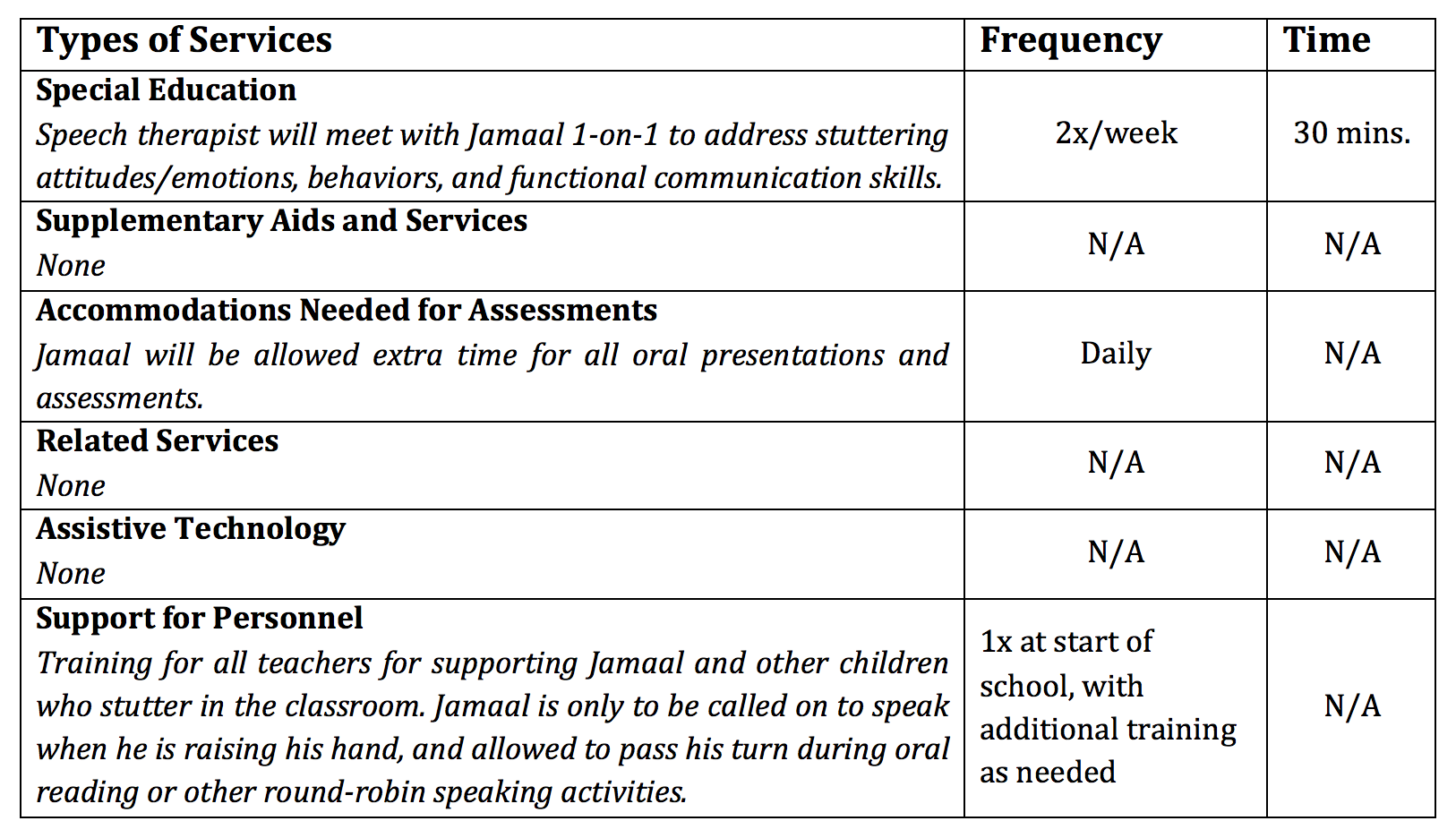

There are federal requirements for public schools to provide all children with a “free and appropriate” education. If any child has a difference that would limit their ability to participate and learn in class, then the school is required to make a plan (if the parent agrees) to accommodate and support the child so they get the same quality of education as their peers.
IEPs are one way that public schools meet these federal requirements. There are other options (such as a 504 Plan, covered in the next section), but you must have an IEP if you want your child to have additional services at school (such as speech therapy). Note: Private schools may meet federal requirements in different ways and may use different plans.
An IEP does not mean that there is anything “wrong” with your child. An IEP is just a legal document that defines the plan for any special education or support services that a child will receive in public schools. It lays out goals for the child to be working towards and also states what services the child will receive (and how often they will receive them).
There is a comprehensive evaluation process to figure out who is eligible for an IEP. A parent can request an evaluation at any time! Usually, asking the teacher is the best way to get this process started. The Stuttering Foundation has more information about the evaluation process here: http://bit.ly/2lnixaD
Children who stutter are often eligible for IEPs, especially if stuttering affects their participation in class or in social situations. But not all children who stutter need an IEP.
There are many situations where IEPs are helpful documents for children who stutter and their parents. An IEP can be helpful if:
Be a strong advocate. Unfortunately, sometimes not everyone on an IEP team has a good understanding of stuttering. Follow your gut, educate the team about your child, and ask lots of questions. Consult with SAY or a stuttering specialist if something doesn’t feel right.
As a parent, you have many rights related to your child’s IEP. You can, and should, participate in all IEP meetings where decisions about your child’s plan are made. You also have the right to deny consent for services or to contest decisions that you do not agree with. And your child can be a part of the IEP meetings, too. It can make a huge difference for kids to advocate for themselves or for them to hear you advocating for them. They should have a voice in setting their own goals and accommodations.
If stuttering is not impacting your child’s ability to learn and thrive in the school setting, but you still want to be sure that they are provided with accommodations and protections in class, do not fear! A 504 Plan may be a better option for you.
In the next section, we’ll dive into Section 504 and the kinds of accommodations that are helpful to request for children who stutter.

Reach out to us with any questions or concerns about stuttering and how to support children who stutter in any setting.